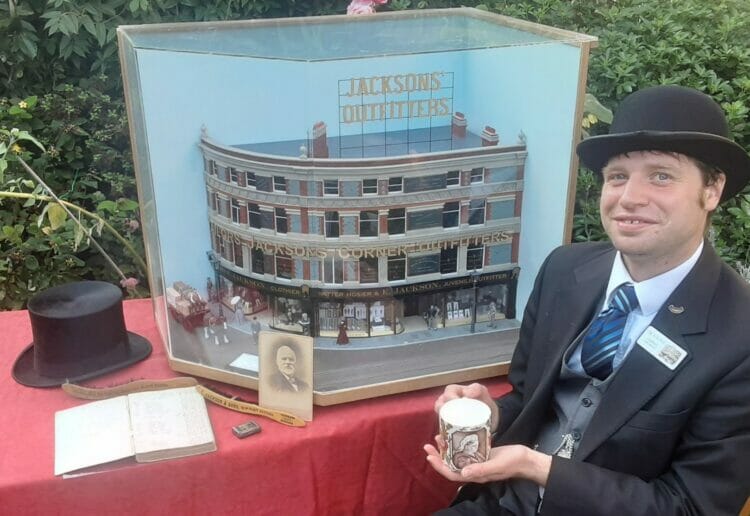IT was a time when customers paid for their shopping through a metal tube and a well dressed gentleman might inquire: “Are you being served?”
But for people in Reading, wooden shelves, glass cabinets or a buttonhole in the left lapel, were not just props in a TV sitcom – they were an everyday occurrence when buying a new suit, hat or, especially, a school uniform at the town’s most famous store, Jacksons.
“We sold uniforms for over one hundred schools across Berkshire,” said former Jacksons employee and archivist, Thomas Macey.
“Lots of famous people shopped at Jacksons including TV star, Ulrika Jonsson who also bought school uniforms for her children. Tim Henman and his wife popped in for tennis clothes.
“One day, Arthur English, the actor who played Mr Harman, the resolute storeman in Are You Being Served? came in. He was very polite and joked with an assistant that it was nice being a customer for a change. One moment, there was a celebrity at the counter, the next a gardener wanting a trowel or a businessman needing a new tie.
“It was a shop for everyone.”
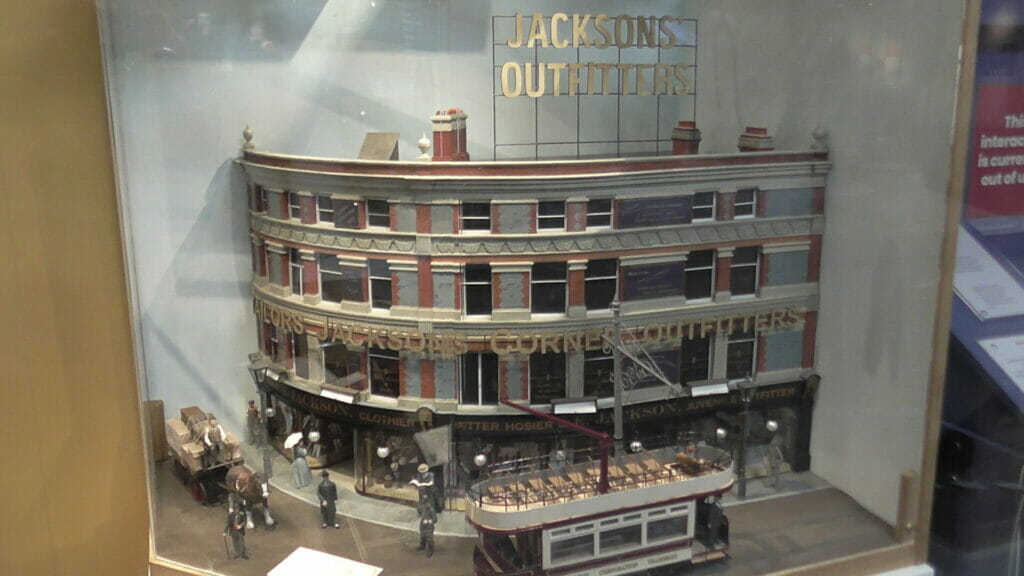
Thomas, who describes himself as a “very old fashioned 36,” started at Jacksons as an equally very old fashioned 16-year-old, straight from school. He worked there for 10 years before it closed
He has written a book about the place and organised an exhibition on its history at Reading Museum. Recently, he commissioned three models of former Jackson stores, two of which have been on display at the Blagrave Street museum.
Thomas has amassed a treasure of Jackson related items, some gifted to him by the last owner, Brian Carter the great-grandson of the store’s founder, Edward Jackson and others he bought at the closing auction.
Thomas is a walking encyclopaedia on all things relating to this most beloved and still missed Reading department store, not least how long it was open – 138 years, 68 days and one hour.
“The shop door opened at 2pm on September 17th, 1875 and closed on December 24th, 2013 at 1pm,” he smiles.
“It was a very sad day for me and thousands of Jacksons’ customers. It may have been the end of an era, but the memory of this remarkable store will live on in people’s hearts and, no doubt, in shoes and jackets still being worn today.
“One of my fondest memories was the rush of customers in September to buy school uniforms. Jacksons was the place to go for those. The shop floor would be absolutely crowded with parents and their children looking for different blazers and school ties.
“I loved talking with regular customers and like all our staff, we got to know their sizes when it came to clothes and even birthdays of their family and relatives so we could help them choose the right gift.
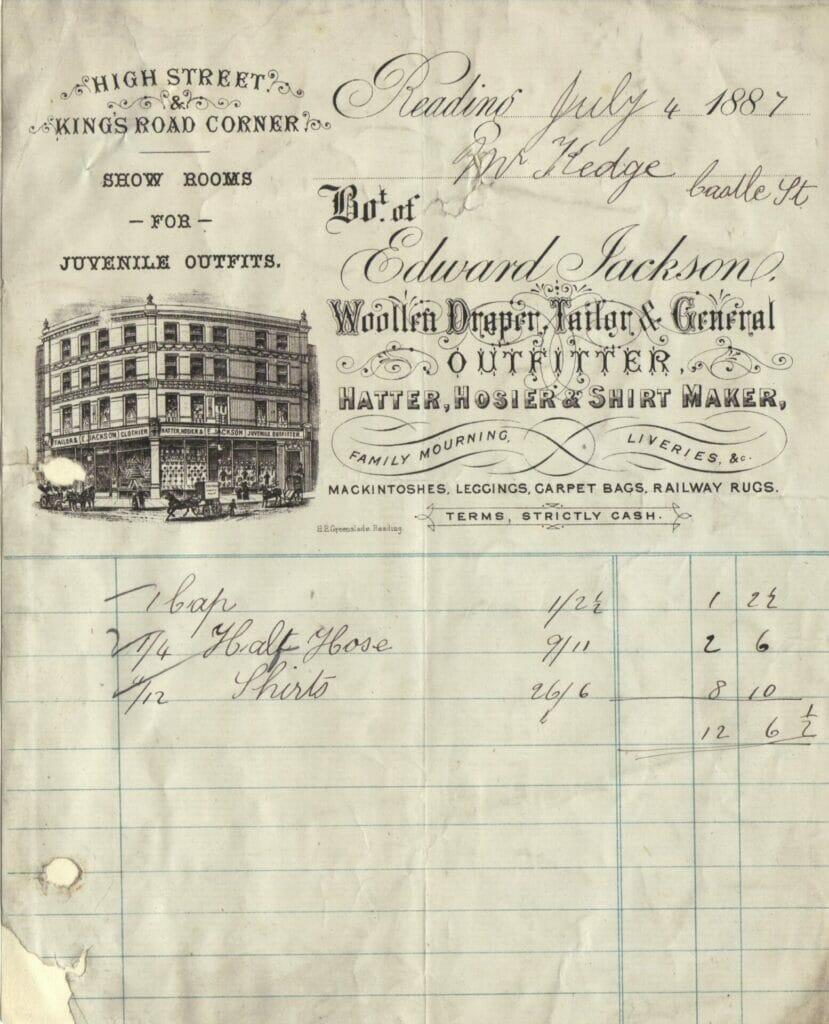
“In many ways, Jacksons was a store caught in a timewarp yet that was also its attraction. It didn’t have any lifts and lots of wood and glass cabinets. When a customer purchased an item, the cash was sent via a pneumatic tube to the accounts office which then returned a receipt and any change the same way. We were the last store in Reading to use this payment method.
“However, Jacksons was also the first to use chip and pin.We also kept up with changes in fashion and household items. I think above all, people liked our high standard of customer service and the expertise and knowledge of the staff. You don’t find that in many shops today.”
Edward Jackson opened the store, originally a small shop in the High Street. Five years later, he built the flagship branch in the then town centre which became known as Jacksons Corner.
An expansion saw Jacksons stores in seven different locations including Caversham, Bracknell and Oxford.
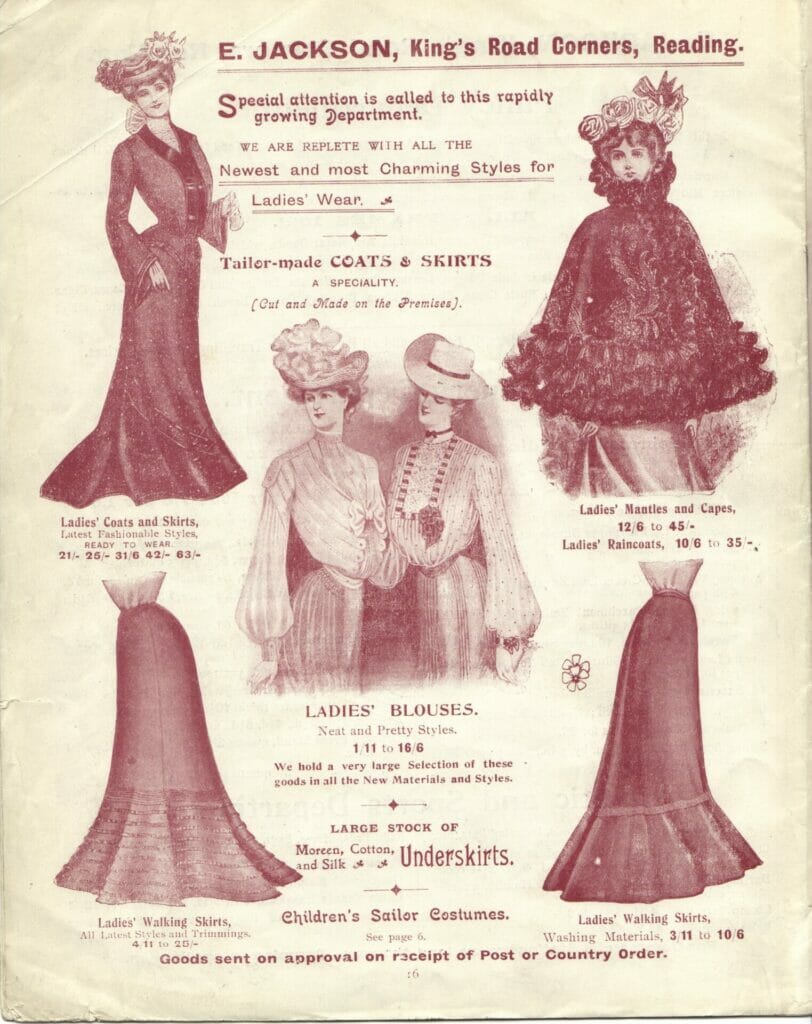
Throughout its history, the company was owned by its founding family. There were further branches in Reading at Duke Street Corner, London Road and Oxford Road
“I’m often asked what led to Jacksons’ demise,” said Thomas.
“Partly it was changing shopping habits and online shopping and the changing face of Reading which meant the town centre moved from where the store was located. There were also issues, costly issues, with the building, especially its flat roof.
“On the last day, staff worked as diligently as they always did but there was a real sadness which we all felt. I used to be a key holder and took great joy in opening the store every morning and sometimes with relief at the end of a busy day, I closed it up as well.
“But that last day when the door was locked was especially poignant. Mr. Carter turned the key. It was over and none of us wanted to say much, just remembering the good days.
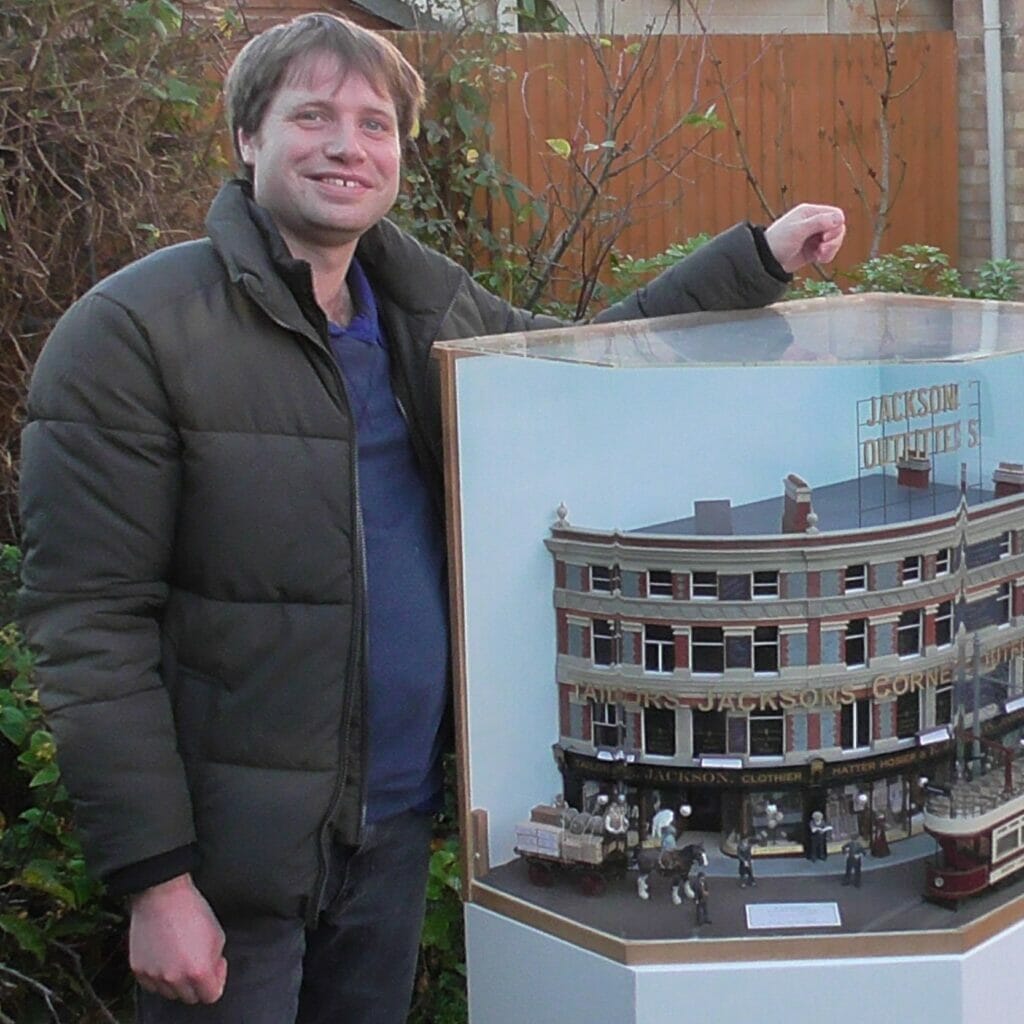
“However, that wasn’t the end of the Jacksons family and we did feel like a family. Mr. Carter holds a Christmas lunch every year for former employees which is a time to catch up and reminisce.
“The best thing I could say about Jacksons is, yes, you have been served. And it was our pleasure.”
You can read more about the story of Jacksons in Thomas’ book, The Story of Jacksons, 1875-2013. For more details, or to order a copy, email: thomas.macey@didcotrailwaycentre.org.uk




















